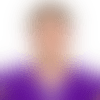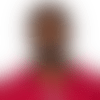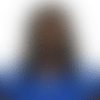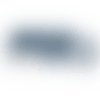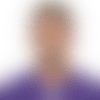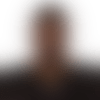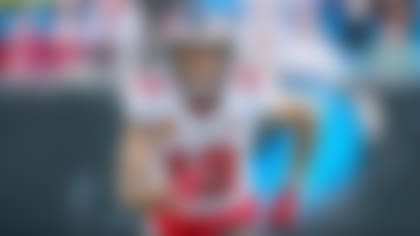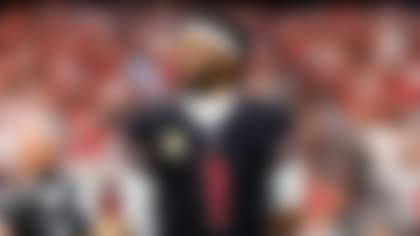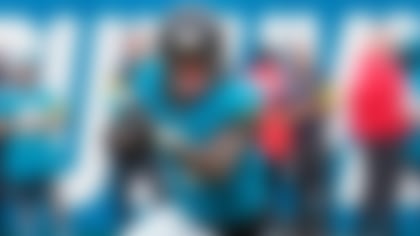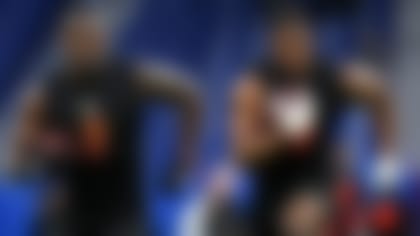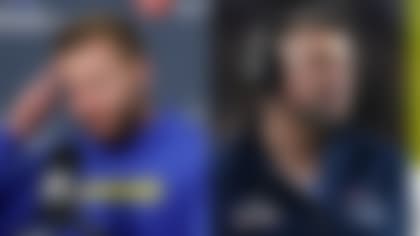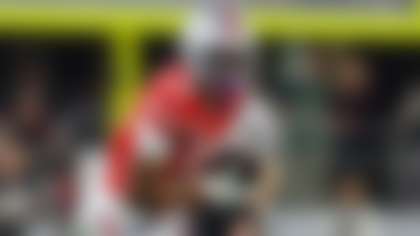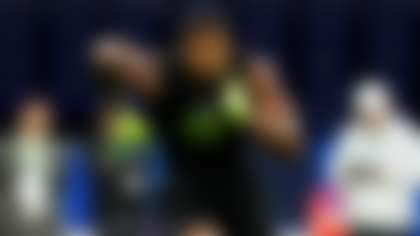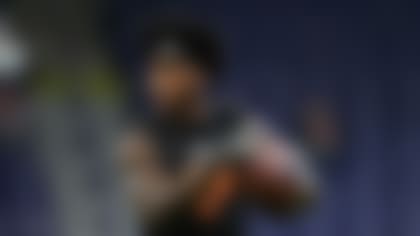The Seattle Seahawks of the 2010s made the Emerald City the place to be for the first time since Pearl Jam and Nirvana were playing club gigs and opening for the Red Hot Chili Peppers. And the biggest catalyst was the 2012 NFL Draft, during which the team selected both Russell Wilson and Bobby Wagner. The funny thing is, neither player was the team's first-round pick that year (it was Bruce Irvin; I'll save you a Google).
Now -- you might have heard -- both players are gone. Wilson is in Denver and apparently very square. And Wagner was apparently so pissed at the Seahawks after being released in March, he signed up with the NFC West-rival Rams. Overkill, like when Scott Steiner joined the nWo back in the day.
With that in mind, we decided to redo the 2012 NFL Draft.
Before we jump in, a few ground rules. I'm going to keep some trades in place and ignore some others. Mostly because I love to spin some narratives. And this is fan fiction, so it's cool to play fast and loose with the facts. At least that's what HBO's drama on the Lakers has shown me.
And second, I'm going to try to put myself in the minds of decision-makers and draft based on need at the time. If that makes sense. In other words, this isn't a ranking of the best players in the draft, but a reflection of the best fits based on need. And, well, this first pick is kind of a noodle-scratcher:
Original No. 1 pick: Andrew Luck
Pretty easy. The Colts needed a quarterback after the end of the Peyton Manning era. And if we had known then what we know now, "Hustle for Russell" would have replaced "Suck for Luck” in the popular lexicon ahead of this draft. I know Luck was good for the Colts, earning four Pro Bowls and driving four playoff appearances before retiring in August of 2019. But Wilson has also been one of the best in a generation, and I would like to believe Russ would still be the Colts' quarterback to this day. If you give him the line they have in Indy now ... Wow.
Original No. 2 pick: Robert Griffin III
In March of 2012, Washington traded a boatload (official term) of picks to move up to draft a quarterback. I’m going to say the club would still do the same thing here. It might seem foolish right now to take Luck, knowing he retired two years ago. But if you could be guaranteed even five full seasons (the number he ended up playing for the Colts, with injuries robbing him of much of 2015 and all of 2017) of Luck, you have to take it. The alternative is trading up for Kirk Cousins. And, well, Washington actually drafted Cousins in real life, albeit in the fourth round. Either way, I’m going with Luck here. Remember the impact RGIII had that first season, winning the Offensive Rookie of the Year award? Now just imagine that happening with Luck and Mike Shanahan. Who knows? Luck might still be playing today.
Original No. 3 pick: Trent Richardson
The Browns did select a quarterback in the first round of this draft: Brandon Weeden at No. 22. And that might have been the worst pick that year -- had the Browns not also selected Richardson (who ran for 1,055 yards at a rate of 3.5 yards per carry over 17 games with Cleveland) third overall. But hey, they get a solid quarterback here. And they might not have found themselves in the trouble they have been in at the position for most of the last decade (though it's the Browns, so you never know). I know Kirk is not super exciting, but he’s a good quarterback.
Original No. 4 pick: Matt Kalil
The Vikings and Browns swapped picks here on draft day. I think it would be fun to have the Vikings stay at No. 3 and take Cousins. But the team had used a pick on quarterback Christian Ponder the previous year -- a high pick, mind you, No. 12 overall -- so the Vikings were not likely to be moving on from Ponder yet. Wagner would be a solid pick here. I mean, I know Minnesota had Jasper Brinkley in the middle but still, Wagner would have been a nice backup. And yes, I’m being facetious. Wagner would have been a force in the NFC North.
Original No. 5 pick: Justin Blackmon
Again, this is not a ranking of the best players from the 2012 NFL Draft. It’s not. If it were, the obvious selection here would be Luke Kuechly. I’m not an idiot. But the Jaguars had just recently acquired Paul Posluszny to play MLB the year prior, and they traded up for a wide receiver in this draft. Instead of Blackmon, whose career was derailed by off-field troubles, they take Jeffery, a really good pro player who averaged 67 catches and 969 receiving yards between 2013 and 2018 -- a Super Bowl winner. (Again, anyone upset about Kuechly's absence here should not get too worked up for this work of fiction.)
Original No. 6 pick: Morris Claiborne
As they did originally, the Cowboys go cornerback with this pick -- but instead of missing on Claiborne, they strike gold with Gilmore. I’m not saying Gilmore is better than Luke Kuechly. But given what the Cowboys needed here (they traded up with St. Louis for this pick), Gilmore would be the -- somewhat -- obvious selection. Corner tends to be an ongoing need for the Cowboys, and this would have been a great pick.
Original No. 7 pick: Mark Barron
Is this a scheme fit? I’m kidding. But I’m also going to stop the perceived slander in this redraft of Kuechly, who would sit no lower than third if we were doing a straight ranking of the players in this class. I know it must be tough for Panthers fans to see this. I’m sorry. (Another wrinkle: Choosing Kuechly with this selection, acquired from Jacksonville in the Jags' trade up to No. 5, means the Buccaneers do not end up with Lavonte David, an original second-round choice in 2012.)
Original No. 8 pick: Ryan Tannehill
Listen to me, listen to me -- this obviously didn’t work out in Miami the first time around. But the success Tannehill has had in Tennessee over the past three seasons illustrates that this was the correct pick, that the Dolphins were the ones to fail Tannehill rather than the other way around. Let’s say instead of bringing Joe Philbin in as head coach, the Dolphins steal away Bruce Arians, who became the Colts' offensive coordinator that season. This suddenly makes sense, right?
Original No. 9 pick: Luke Kuechly
Well, I could have just had Kuechly fall back to you guys here, because you should be rewarded for such an excellent selection. And maybe once I get together with my editing team, we will do just that. (Spoiler alert: We didn't.) Jones would still be a great player for the Panthers, providing pass-rush stability for years to come.
Original No. 10 pick: Stephon Gilmore
The Bills nailed it with Gilmore in the 2012 NFL Draft. But Norman would be an excellent option here. Today, Norman is a 34-year-old free agent who has bounced around a bit recently, even spending a nine-game stint in Buffalo in 2020. But he was a really solid player for years after this draft, logging 14 picks and one first-team All-Pro nod in his first eight seasons in Carolina and Washington. I mean, we need to remember this was a decade ago. Norman would have been great in Buffalo.
Original No. 11 pick: Dontari Poe
Again, putting Cox here does not mean I think he’s the 11th best player in this draft. This would be a really good fit (I think) for the Chiefs, who drafted Poe to fill this spot that season. Cox played in the 4-3 defense in Philly but would be perfect to fill the middle in Kansas City.
Original No. 12 pick: Fletcher Cox
Having just missed out on the guy who actually landed with them in 2012, the Eagles (who traded up with Seattle for this choice) turn to a player I feel is vastly underrated. And yes, I’m saying that as a biased fan of the Bears, with whom Hicks spent the past six seasons. But I truly believe Hicks would have been a fan favorite in Philadelphia. I can nearly guarantee it.
Original No. 13 pick: Michael Floyd
All right, you can get mad at me once again for sort of cheating the rules here and leaning on the knowledge that Carson Palmer, who was still toiling away for the Raiders in 2012, would soon arrive to solve Arizona's need at quarterback. The Cardinals originally wanted a receiver and went with Floyd, who managed to crack 1,000 yards just once in seven NFL seasons. I'm saying the Cards still select a receiver here to pair with, uh, Kevin Kolb, because I'm imagining how great Hilton would be at some point with Palmer and Larry Fitzgerald.
Original No. 14 pick: Michael Brockers
Looking back at the Rams' secondary, this was a position of need. Quintin Mikell and Craig Dahl I’m sure are fine people, but the franchise really could have used an upgrade at secondary -- even if they did draft defensive line with their first pick in this draft, acquired from Dallas in the Cowboys' trade up for No. 6. Smith has 29 career picks, more than any other player selected in 2012.
Original No. 15 pick: Bruce Irvin
The Seahawks will not end up with Bobby Wagner in this exercise because, well, Bobby is awesome and came off the board well before Round 2, when he was originally chosen. David is a former All-Pro and would no doubt have been a huge part of the "Legion of Boom" defense after being selected with this choice, returned from Philly in a swap for the No. 12 overall pick.
Original No. 16 pick: Quinton Coples
The Jets could have addressed the offensive line here, but they were shopping for help at defensive end at the time. Coples (16.5 sacks over four NFL seasons) was certainly not the answer. Hightower might not have fit exactly what the Jets were looking for in terms of positional need, but he is a defensive leader. And this selection keeps him off the AFC East-rival Patriots.
Original No. 17 pick: Dre Kirkpatrick
The Bengals took offensive lineman Kevin Zeitler with pick No. 27 in the original draft, and they might be able to swing that pick again. However, I’m looking for Cincinnati to snag DeCastro here (with a choice acquired from the Raiders in exchange for Carson Palmer in 2011) not only as an upgrade on the line, but also to tweak the AFC North-rival Steelers (DeCastro's actual NFL team) in the process, which is always fun.
Original No. 18 pick: Melvin Ingram
Ingram (49 sacks in nine seasons with the Bolts) worked out pretty well, but imagine how differently the past decade would have turned out for the infamously snake-bitten Chargers if they'd nabbed the most accurate kicker in NFL history (91.061 percent field-goal rate), who went undrafted in real life. Since 2012, the Chargers have had 12 different players attempt at least one field goal for them. With this pick, they secure someone who could still be winning games for them today.
(And while one could make a solid argument for basically any team above to draft Tucker, we have to at least nod to the fact that kickers simply don't get picked in the first round -- only one kicker, Sebastian Janikowski, who went 17th overall to the Raiders in 2000, has been chosen in Round 1 in the past 44 years. So No. 18 feels like a fair place to slot Tucker.)
Original No. 19 pick: Shea McClellin
I like McClellin as much as the next guy. He sacked Aaron Rodgers 1.5 times during his rookie season, so we might just draft him for that. But I've always been big on Snacks Harrison, and I feel like he could be a huge part of this defense, eventually embodying the role that Hicks took on.
Original No. 20 pick: Kendall Wright
Instead of Wright, the Titans fill their need at receiver by taking Jones, who slid to the Bengals in the fifth round originally but has since proven himself one of the most productive pass-catchers in this class. Jones leads all 2012 draftees in career touchdown receptions (55) and ranks second (to Hilton) in catches (496) and receiving yards (6,857).
Original No. 21 pick: Chandler Jones
The Patriots did a great job with this pick in real life, taking Jones with a choice acquired in a draft-day swap with the Bengals, then using him for about a year before sending him to Arizona. (Kidding! He played four seasons in New England.) Vernon was a stud coming into the league who was chosen by Miami in the third round. With Jones off the board, he would perfectly fit that profile of a guy who rocks out for a couple of years, and then gets shipped elsewhere by the Pats.
Original No. 22 pick: Brandon Weeden
The Browns used this pick (part of the return in the trade that enabled the Falcons to draft Julio Jones sixth overall in 2011) on -- checks notes -- Brandon Weeden. The Browns did take Billy Winn in the sixth round this year, and he did end up starting at defensive tackle as a rookie, but Poe would be a huge upgrade here. Anything over Weeden (who went 5-15 with a 23:26 TD-to-INT ratio over two seasons in Cleveland) would be, but you know what I’m saying.
Original No. 23 pick: Riley Reiff
The Lions took a tackle in the first round here and could easily go that direction again. But with Ingram sliding thanks to the Chargers' selection of Justin Tucker, Detroit jumps at a player with more career sacks (51) than any member of the Lions has managed since 2012.
Original No. 24 pick: David DeCastro
The Steelers nailed this pick in reality with DeCastro, because of course they did. They are the Steelers. With DeCastro gone here, they snag Brooks, who would be another great pick for them. And I know I’m crazy, but I think Brooks' career would have turned out even better than it did in Philly (where he earned three Pro Bowl nods) if he'd played for the Steelers -- because they are, after all, the Steelers.
Original No. 25 pick: Dont'a Hightower
The Patriots moved up to this spot to take Hightower, an excellent player for them, in a swap with Denver. I'm tempted to say they wouldn't move up in this exercise, with Hightower off the board. Then again, New England ended up making a move for a corner later in the year, snagging Aqib Talib from Tampa in November. Maybe Hayward would have filled that need earlier -- or maybe he and Talib would have been paired together.
Original No. 26 pick: Whitney Mercilus
I thought this was a pretty solid pick for the Texans, as Mercilus went on to have six sacks as a rookie and was rather productive before injuries took a toll. Ultimately, I think they should just draft him again.
Original No. 27 pick: Kevin Zeitler
Burfict was a controversial figure during his time in Cincinnati. And we all know that he went undrafted in 2012. But it’s hard to imagine the successful Bengals teams of this era without him, for good or for bad. I feel like Cincinnati, which acquired this pick from the Patriots (who originally acquired it from the Saints in 2011) have to take him here.
Original No. 28 pick: Nick Perry
Perry was a solid player. But the Packers really got a steal in the fourth round with Daniels, who turned into a Pro Bowler. And it’s going to cost them a little more to get him this time around.
Original No. 29 pick: Harrison Smith
The Vikings did great with Smith, acquired with this selection as part of a draft-day trade -- this worked out well for them, but not so much for fans of other teams around the NFC North. Since Smith is not available in this case, I have the Ravens holding on to their pick and going with Osemele, who was an excellent selection for Baltimore in the second round in real life but likely wouldn't last until the 60th overall choice in a redraft.
Original No. 30 pick: A.J. Jenkins
The 49ers needed a receiver, and Jenkins (who logged one target with the team before being traded to Kansas City in 2013) was not it. Since the other good receivers from this draft are long gone, I’m going to say Jackson would be a huge piece for the 49ers, who could have easily used him as a role player on their road to Super Bowl XLVII.
Original No. 31 pick: Doug Martin
This pick, acquired from the Patriots as part of New England's move up for Dont'a Hightower, was again flipped from Denver to the Bucs, who selected Martin in real life. It might have been odd for the Broncos to draft Foles in Round 1 just one month after winning the Peyton Manning sweepstakes. And this likely would have cost Denver the chance to pick up Derek Wolfe, which the team did with Tampa's second-rounder (36th overall). But if the Broncos had selected Foles, perhaps he would have proven a more capable eventual Manning replacement than Brock Osweiler (picked 57th overall in this draft). Maybe -- just maybe -- Foles would be starting for the team to this day (which is a good thing, since we have Russell Wilson, Denver's current real-life QB, potentially sticking with the Colts up above).
And, coming back around to the Patriots, the Philly Special most likely doesn't happen in Super Bowl LII. The Patriots have seven Super Bowls, and the world is different.
Original No. 32 pick: David Wilson
I know it seems weird to take a special teamer at the end of the first round. But the Giants had a great kicker (Lawrence Tynes) and punter (Steve Weatherford) at the time, and in that respect, it doesn’t seem really outlandish to take a Pro Bowl special teams ace in this spot.
Follow Adam Rank on Twitter.






